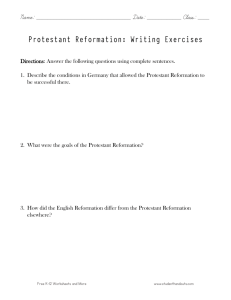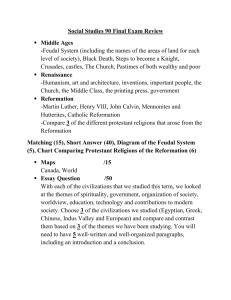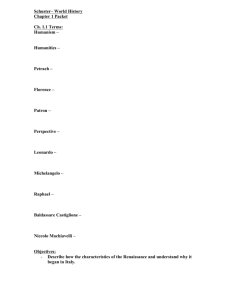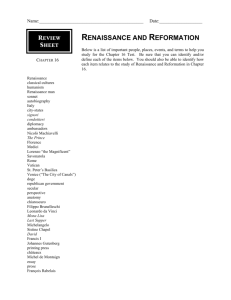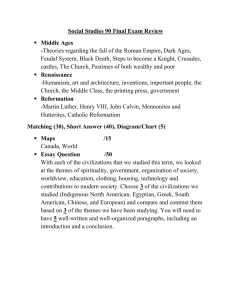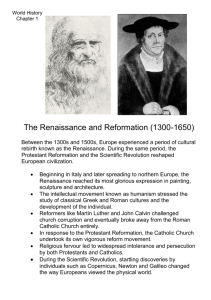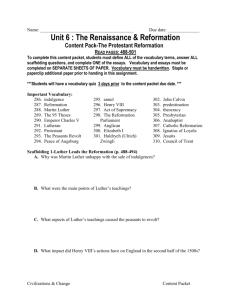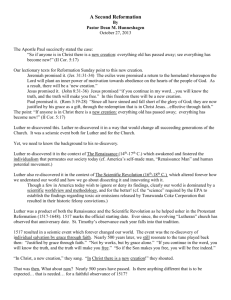AP Euro – Chapter 11: The Age of Reformation – Study Guide
advertisement
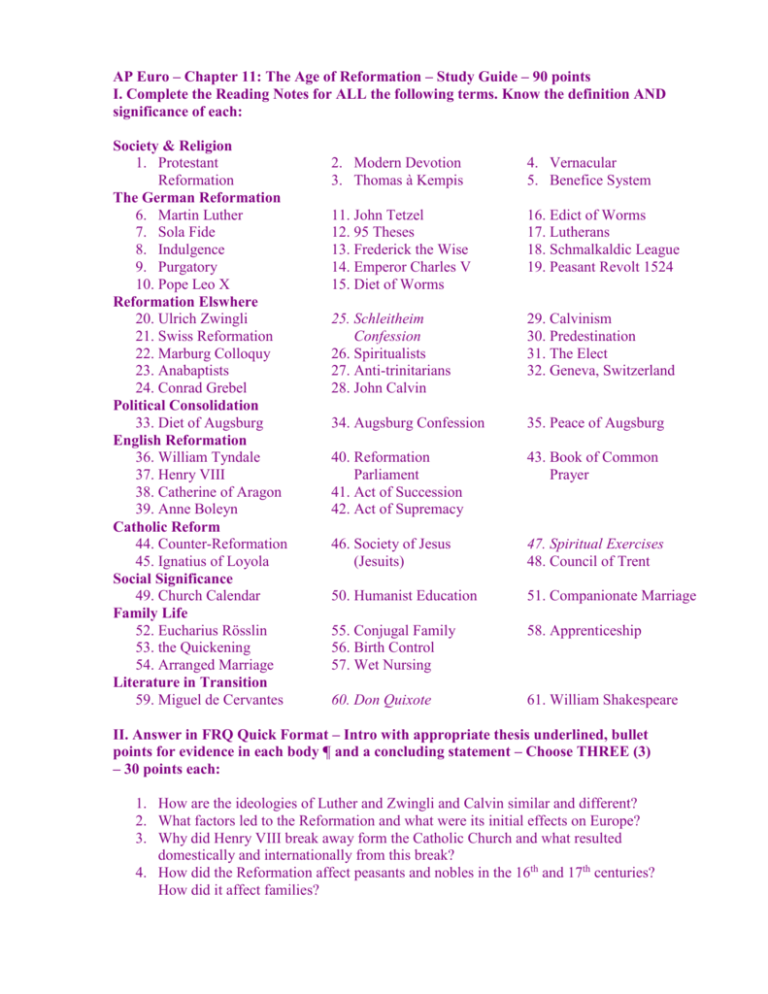
AP Euro – Chapter 11: The Age of Reformation – Study Guide – 90 points I. Complete the Reading Notes for ALL the following terms. Know the definition AND significance of each: Society & Religion 1. Protestant Reformation The German Reformation 6. Martin Luther 7. Sola Fide 8. Indulgence 9. Purgatory 10. Pope Leo X Reformation Elswhere 20. Ulrich Zwingli 21. Swiss Reformation 22. Marburg Colloquy 23. Anabaptists 24. Conrad Grebel Political Consolidation 33. Diet of Augsburg English Reformation 36. William Tyndale 37. Henry VIII 38. Catherine of Aragon 39. Anne Boleyn Catholic Reform 44. Counter-Reformation 45. Ignatius of Loyola Social Significance 49. Church Calendar Family Life 52. Eucharius Rösslin 53. the Quickening 54. Arranged Marriage Literature in Transition 59. Miguel de Cervantes 2. Modern Devotion 3. Thomas à Kempis 4. Vernacular 5. Benefice System 11. John Tetzel 12. 95 Theses 13. Frederick the Wise 14. Emperor Charles V 15. Diet of Worms 16. Edict of Worms 17. Lutherans 18. Schmalkaldic League 19. Peasant Revolt 1524 25. Schleitheim Confession 26. Spiritualists 27. Anti-trinitarians 28. John Calvin 29. Calvinism 30. Predestination 31. The Elect 32. Geneva, Switzerland 34. Augsburg Confession 35. Peace of Augsburg 40. Reformation Parliament 41. Act of Succession 42. Act of Supremacy 43. Book of Common Prayer 46. Society of Jesus (Jesuits) 47. Spiritual Exercises 48. Council of Trent 50. Humanist Education 51. Companionate Marriage 55. Conjugal Family 56. Birth Control 57. Wet Nursing 58. Apprenticeship 60. Don Quixote 61. William Shakespeare II. Answer in FRQ Quick Format – Intro with appropriate thesis underlined, bullet points for evidence in each body ¶ and a concluding statement – Choose THREE (3) – 30 points each: 1. How are the ideologies of Luther and Zwingli and Calvin similar and different? 2. What factors led to the Reformation and what were its initial effects on Europe? 3. Why did Henry VIII break away form the Catholic Church and what resulted domestically and internationally from this break? 4. How did the Reformation affect peasants and nobles in the 16th and 17th centuries? How did it affect families?
